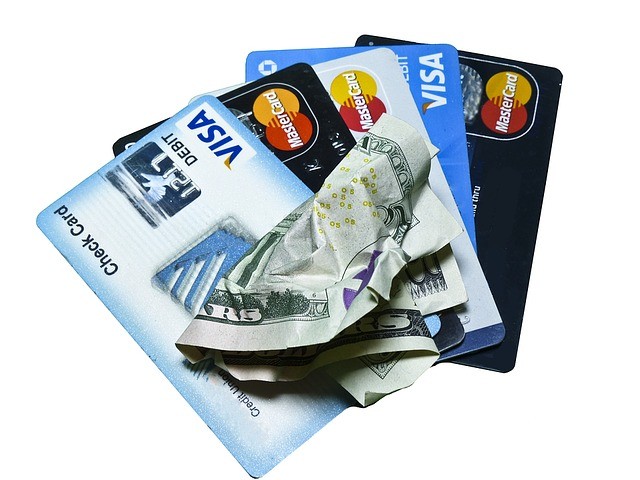No one likes being in debt, but it can be tough to figure out how much to pay and how quickly to maximize your paycheck and get out of debt. When you apply for a loan at a bank, they look at your debt-to-income ratio with the expectation that your monthly debt payments are less than 36% of your gross income. Ideally, you want that figure to be 10%, but even 20% is quite good. With that in mind, here’s what makes sense for the different types of debt you may incur.
Mortgage Payments
Including taxes and insurance, your mortgage payments should not be more than 28% of your income. So if you make $4,000/month ($48,000/yr), your total monthly mortgage payments should not exceed $1,440. If you’re looking to buy a house, you can see what your payments will be with a mortgage calculator.

Credit Card Debit
Unless you pay them off every month, credit card debt has a way of snowballing and sticking around forever. It’s best to pay them off as soon as you can. The interest rates are always ridiculously high, and the money you’re throwing at it could be better spent elsewhere. In addition, 1/3 of your credit score is based on what’s called the “credit utilization rate,” – meaning how much you’ve used of the credit that’s been extended to you. Basically, that’s the total of all the limits on your credit cards divided by the total amount you owe. To break that down, if your total credit limit is $10,000 and you owe $5,000, your credit utilization rate is 50%. Generally, anything higher than 30% could negatively affect your credit score. Not sure what your credit score is? Check it for free!

Yourself
Technically, this isn’t debt, but you should treat it like it is. The best way to save money and protect your long-term financial health is to pay yourself first, so every month, set money aside in a separate account the same way you’d pay your other bills.
Getting out of debt takes time and discipline, but it is possible. If you’re still struggling after reading these tips, consider working with a daily money manager to create a budget you can live with.









